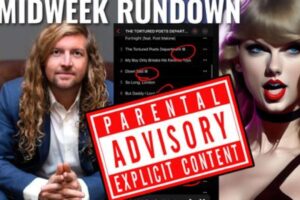Victoria Walker isn’t a hard-core video gamer, but she knows a thing or two about avatars and virtual worlds. For her doctoral dissertation, the mother of two created a counselor training facility where mental health students could hone their diagnostic skills on a licensed counselor and higher-level graduate student pretending to be patients with self-inflicted injuries and eating disorders.
In the virtual world known as Second Life, where online users inhabit digital representations of themselves called avatars, Walker created a facility that users can walk into, ride an elevator up to the counseling rooms on the second floor and look inside.
“They could look through one-way mirrors and see a counseling session in progress,” says Walker, 39, now director of continuing education and instructional and Web technologies at Regent University in Virginia Beach, Virginia. “Students were able to come in and interview [the patients], practice skills they had only been able to read about in their textbooks and see in videos, and practice with friends.”
Walker is no stranger to the Web. She completed her entire doctoral degree online while working full time, graduating last May from Regent University with a Ph.D. in education. Within weeks of her graduation she was promoted at work, where her job is to expand the use of technology in education.
This is by far the fastest-growing segment of higher education. In the last decade the number of students enrolled in online courses has exploded, and an economy in which diversified skills and dense resumes are paramount has given it yet another boost. Christian colleges have been at the forefront of the trend, with several schools experiencing more than 40 percent growth in online enrollment in recent years.
“Christian colleges are ahead of the curve,” says Cynthia Tweedell, executive director of the Council for Christian Colleges and Universities’ Center for Research in Adult Learning. The center is at Indiana Wesleyan University, a Christian college in Marion, Indiana, that has offered online courses to its 15,000 students since 1997.
Christian colleges are “smaller and able to adjust to market forces more easily,” Tweedell says. “The bigger the college the slower it is to adjust to market forces. … It’s like some of the traditional schools are stuck in the 19th century, and they’re just talking about online education. Some of the Christian colleges … [are] talking about what’s next. What’s the next thing after online education?”
Facing the Future
Online degree programs are making education available to students who never had access before. The number of students enrolled in at least one online course grew by 17 percent between 2007 and 2008, a pace far exceeding the 1.2 percent growth rate for higher education as a whole, according to the latest report by The Sloan Consortium, a professional leadership organization dedicated to online education.
Seventy-three percent of colleges and universities reported that the recession has caused more interest in online programs, and 66 percent reported interest in new online programs. The study, published in January, is based on responses from more than 2,500 colleges and universities.
At Abilene Christian University, which is in Abilene, Texas, and has some 4,500 students, online enrollment has ballooned from 68 students in 2007 to 500 expected this fall. And at Belhaven University, a Jackson, Mississippi-based school that offers six campuses across the Southeast, online enrollment doubled in the last year alone. The online program at Regent University’s 5,000-student school founded by Christian broadcaster Pat Robertson’s ranked second in last year’s Online Education Database, making it possibly the nation’s top one among Christian colleges and universities.
Online courses are quickly evolving from Socrates’ model of lecturing students gathered in a group. Even the more recent online courses’ seminar-style classes that relied mostly on online discussion threads are becoming dated, giving way to fast-changing new innovations.
At Indiana Wesleyan University, where online enrollment has jumped 41 percent since 2007, business students are learning from online avatars employed in virtual marketplaces, like in Second Life. Online students at Regent University are learning through a diversity of media, including audio, video and more.
Online programs are ideal for adult learners like Walker, who are unable to quit their jobs or disrupt their families to go back to school full time. The Massachusetts Institute of Technology, Yale University and other colleges and universities are even putting courses online for free.
The move is causing some to wonder what the value of a degree could be in the future if higher education institutions head in a similar direction as newspapers and make themselves available online for free, says Jason Baker, author of The Baker’s Guide to Christian Distance Education and a professor of education at Regent University.
Students of these free courses get no credit or degree, but the courses are valuable to those who just want to learn, Baker says. Online degree programs in which paying students enroll in courses and earn credits and degrees have been slower to catch on among traditional students, though, and most believe the traditional college experience of dorm living and joining sports teams and clubs will persevere, says Roger Parrott, president of Belhaven University, an evangelical university with some 3,500 students.
“I don’t think one is replacing the other,” he says. “It’s just more education.”
Online programs work because they are convenient and save students commuting and other costs. Because students are able to maintain their jobs and family lives while they learn, they can apply their lessons in real time, rather than waiting until the semester is over, Baker says.
The programs engage students using a variety of means. Some connect students through videoconferencing, using programs such as Skype. Some use discussion threads. The next innovation appears centered on the iPhone and iPad, Baker says.
Employers accept the degrees from accredited colleges and universities just as any other because they see no difference, Tweedell says. At Indiana Wesleyan University, research shows online programs to have comparable outcomes with those of traditional programs. A separate study found that on average online students actually perform better than those receiving face-to-face instruction. The 2009 study, prepared for the U.S. Department of Education by SRI International, an independent, nonprofit research organization, is a 93-page analysis of research on the subject of online education from 1996 to 2008.
“It’s not inferior,” Tweedell says of online education. “In fact we find that people in online education programs often are more involved because they have to participate more. So they’re more engaged in their education process than a person sitting in a lecture hall.”
Counting the Cost
The programs are not for everyone. Online students must be very self-motivated and should realize that more convenient does not necessarily mean easier, Baker says. Some students require face-to-face interaction, and that is another reason why traditional programs will remain, he says.
Online students should be prepared to invest a significant amount of time in their schooling, and if they plan to do it while working full time, the family should be prepared to support the student and help with household duties, says Carol Williams, associate provost for online programs at Abilene Christian University.
“They should be aware, for us these are graduate programs,” she says. “They do require some time. It’s not something that is self-paced. You have regular deadlines. I was talking with someone at graduation, and they were saying this was a family affair because mom was not only working, but she was taking these courses, and so the whole family had to pitch in and help with the family chores. So it’s a commitment.”
Students should make sure their college or university is accredited by a regional or national accreditation agency, and this can be tricky because anyone can establish an accreditation agency, Tweedell says.
Look for regional and national accreditation agencies such as the Higher Learning Commission of the North Central Region. Credits earned through an unaccredited institution might not be transferable, and employers might not accept the degree. Also research an online program’s success rate.
Students also should make sure they have access to the technology required by the program. Check to see whether the program offers any technical support.
When Eileen Lockhart, 52, a fifth-grade teacher in Kissimmee, Fla., first went back to school as an online student in 1995 her studies consisted mostly of correspondence courses with a few e-mails with her professors sprinkled in.
Today as an online doctoral student at Regent University studying online education, she is using virtual worlds, e-mail and Skype. For one class on leadership she was part of a group that included students in Oregon and Virginia Beach.
Having completed both her bachelor’s and master’s degrees online, Lockhart says online education is as good as traditional models. But is it actually better because it makes education more accessible?
“I think that yes, in a sense it opens the doors for a lot more people to go to school,” Lockhart says. “I think there are benefits to face-to-face education also. But as more and more technology becomes available, those face-to-face parts that are missing in online education, those doors are opening. … You can do more in online education now.”
Amy Green is a journalist in Orlando, Fla. She earned her journalism degree the old-fashioned way at the University of Florida, back when email was new.
See an error in this article?
To contact us or to submit an article




















